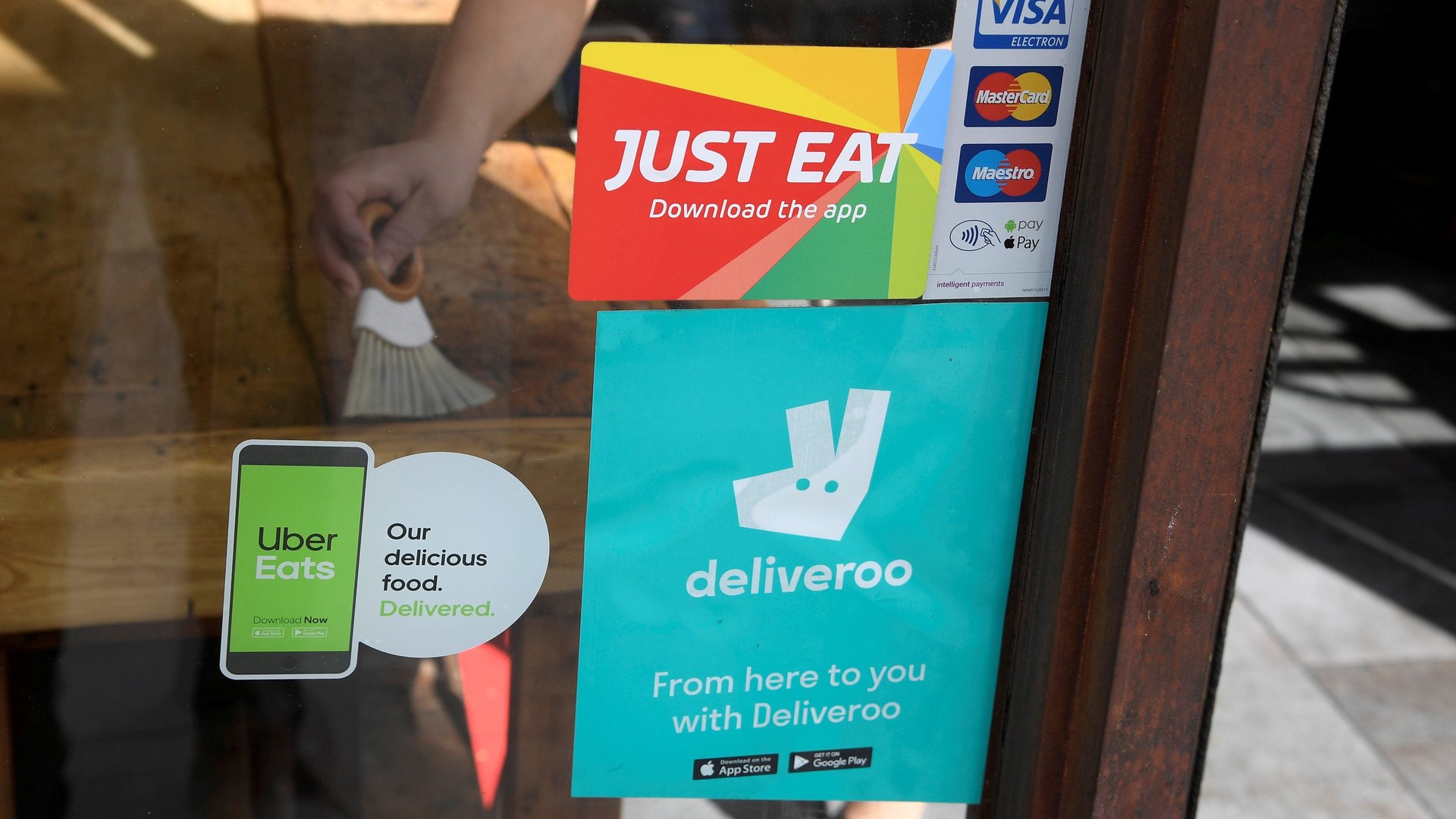Uber’s lost deal for Grubhub is still a huge step for the food delivery sector
On June 10, Grubhub cut Uber out of a potential deal and agreed to merge with Just Eat Takeaway, a European food delivery service, in an all-stock purchase valued at $7.3 billion.


On June 10, Grubhub cut Uber out of a potential deal and agreed to merge with Just Eat Takeaway, a European food delivery service, in an all-stock purchase valued at $7.3 billion.
For Uber, the trans-Atlantic marriage marks a lost opportunity—one that would have allowed it to create the largest US food delivery service, leapfrog over DoorDash, and put considerably more distance between Uber Eats and smaller rivals like Postmates and Waitr.
Perhaps the problem came down to price, but it’s clear Uber would have faced an uphill battle getting regulatory clearance to buy Grubhub (not that Uber, or its Uber Eats division, is a stranger to regulatory challenges). On May 20, US senator Amy Klobuchar and a group of fellow Democrats sent a letter (pdf) to the US Department of Justice’s antitrust division, urging an investigation into the merger if the deal between Uber and Grubhub went through.
Combining Uber Eats and Grubhub “would create an effective duopoly that would likely threaten competition and consumer welfare,” resulting in higher fees, reduced service quality, fewer choices, and less innovation, the senators wrote. They add that the online food apps are still “evolving and finding new ways to connect customers with restaurants.”
Whether or not an Uber-Grubhub combination would have violated antitrust rules, the concerns highlight just how far the meal delivery business has come.
Fueled by food
As an industry still in its infancy, food delivery may not have been an obvious target for antitrust regulators, who are more famous for instigating the breakup of historically important companies like Standard Oil and the Bell telephone system. (More recently, antitrust regulators have set their sights on technology companies, from Microsoft in the 1990s to Google today.)
But even before food delivery became an essential service in the midst of a global pandemic, the industry was growing rapidly in just the past few years. Herbert Hovenkamp, a professor of legal studies and business ethics at the University of Pennsylvania’s Wharton School, notes that 10 years ago, there were only a few big grocery stores delivering door-to-door, and the typical restaurant delivery operation involved a single car operated by an employee of the same restaurant.
The food delivery apps have changed that.
Take Uber Eats, for instance. Founded three years ago, Uber Eats grew 54% year-over-year in the first quarter, with $4.68 billion in booked revenue. The fast-growth is in part due to Eats being able to leverage Uber’s ride-sharing platform and tap into its massive pool of drivers. More recently, the pandemic has helped fuel demand.
“We never had these enormous national companies that were just in the business of food delivery [like] Grubhub and Uber Eats,” says Hovenkamp.
Still, the meal delivery business remains unstable. In the first quarter, Uber Eats recorded a $313 million loss in adjusted EBITDA.
As Forrester Research analyst Brendan Witcher points out, it’s hard to imagine that consumers will want to continue to pay high fees for food delivery once the pandemic has passed. When restaurants come back, the demand for Uber Eats and its competitors is likely to decline.
“This is a moment that will determine whether or not [the food delivery apps] will be successful,” says Witcher. “Because if you can’t succeed and be profitable in a time when nearly everybody is moving to a service that you provide, then I think you have to really question your business plan.”
The merger, he notes, reflects the need for food delivery apps to reach a scale that allows them to operate profitably at affordable prices.
With the food delivery industry increasingly saturated with unprofitable players, investors are eyeing opportunities for more consolidation. Just Eat Takeaway is itself a combination of two European companies that were facing pressure from Uber Eats and Deliveroo in their respective markets.
While the Uber deal for Grubhub may have fallen through, that doesn’t mean the company isn’t looking for another merger. In a Bank of America conference call last week, Uber CEO Dara Khosrowshahi noted that the food delivery business is a “big” and “important” category—and that the area is going to continue to consolidate. In the pursuit of achieving the top spots in the global markets where Uber operates, Khosrowshahi says, “[t]he deal has to be right.”